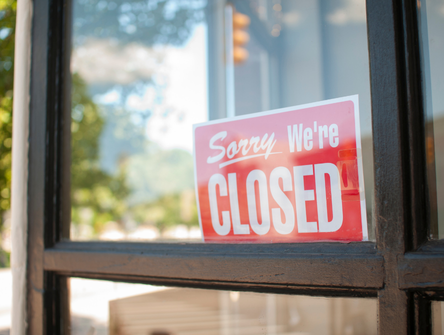‘A cry for help’
New report on wellness paints a grim picture of life in the legal profession

If there’s one key takeaway in a new report on wellness in the legal profession, it’s that all is most definitely not well among those working in it.
“This is a bit of a cry for help,” says Fabien Fourmanoit, chair of the Canadian Bar Association’s well-being committee and in-house counsel at Xplore Inc.
“It’s very clear that all is not well.”
The report is the second phase of a national study, Towards a Healthy and Sustainable Practice of Law in Canada. Dr. Nathalie Cadieux at the Université de Sherbrooke led the five-year research project, which was funded by the Canadian Bar Association, the Federation of Law Societies of Canada, and the Social Sciences and Humanities Research Council of Canada.
The first report was released in 2022, and its unsettling findings raised alarms over the levels of psychological distress, depression, and burnout across the sector, as well as the high rates of alcohol and drug abuse.
Building on that quantitative data, this latest publication draws on interviews with lawyers, paralegals, notaries, and articling students from across the country, and it paints a grim picture of life in the profession.
“I don’t know many lawyers that actually have good mental health,” one participant told researchers.
“Everybody is struggling but won’t admit it,” said another.
The report found that working long hours and heavy workloads are highly valued in the profession, and logging a high number of billable hours and making a lot of money for firms is glorified. Neither aligns with a healthy work-life balance.
Moreover, prioritizing anything other than work leads to questions about commitment and perceptions of laziness.
There’s also still stigma around struggling and vulnerability. More than half of the legal professionals researchers spoke to believed people in the profession see mental health issues as a sign of weakness. That leads many to suffer in silence, avoid taking sick leave out of fear of reprisals, or turn to drugs and alcohol to cope.
“The problem is enormously high billable hour quotas,” says Glen Hickerson, past chair of the well-being committee who was on the report’s steering committee.
“I'm calling them quotas deliberately. I know nobody in the industry wants to call them that, but really they are.”
He says they’re inhumane and underpin a culture that expects people to be overworked and overwhelmed, and put up with enormous incivility.
Although lawyers and clients alike hate the system, Hickerson says most in the profession can’t seem to get away from it — aside from a small number of firms experimenting with other ways of measuring value.
The result is a profession that eats its own.
“People are burning out. They are getting sick. They are leaving the profession. They're leaving firms. Some people are dying,” he says.
“The very thing that’s producing the value that law firms are selling is being degraded by the way the work has been structured.”
Hickerson notes the first wellness report found that more than 50 per cent of people in law said they would find another way of making a living if they could.
“No one I know is happy doing what they’re doing. We always talk about wanting to leave the profession,” one study participant said.
That’s particularly true among younger lawyers, who have different views and expectations around work-life balance. While some firms might be tempted to simply dismiss them as entitled, Hickerson says they ignore this at their peril.
“They’re coming to a point of a reckoning. They can't get away with just pointing to their great employee assistance program or the mindfulness meditation sessions they have once in a while.”
Fourmanoit says that for a workforce to perform well, people need the right tools, reasonable constraints and support, and the ability to take time off.
“These are all basic things that, frankly, many folks outside the legal profession have understood for a long time,” he says.
“For some reason, some within this profession just don't want to hear that.”
Doron Gold, a former lawyer turned psychotherapist, says there has been some improvement in the 18 years he’s treated lawyers.
“I absolutely see progress, but it's a slow slog, and it meets resistance all along the way,” he says. “In the last few years, there’s been pushback.”
Some of that is from people who see this as coddling kids who no longer want to work.
CBA President Lynne Vicars says the justice system is a critical pillar of our democratic system, and concerns about the high levels of distress experienced by legal professionals should extend beyond the profession itself.
“We must continue examining how we conduct business so that together, we can create healthier work environments and remove the stigma around mental health,” she said in a statement.
“Having the data in hand is an essential step in ensuring everyone has the resources they need to tackle their health challenges.”
The study shares several well-being initiatives introduced by law societies across Canada, some of which align with the recommendations from the first phase. Individual jurisdictional reports offers insights into what can be done. Vicars says the targeted recommendations will help guide ongoing efforts on this critical issue.
Fourmanoit says he’s an optimist and sees these reports as an opportunity. But whether it’s giving people tools to better take care of themselves, looking at alternative funding models or having outside vendors, including in-house counsel, that procure services from firms, make demands of firms around staff wellness, much like what happened on the diversity and inclusion front, there’s no one solution.
Hickerson says it’s also important to make people aware of available help, as most jurisdictions in Canada now have lawyer assistance programs.
In the coming year, Fourmanoit says the well-being committee will focus on facilitating conversations so that players in the profession can take concrete action to address the collective lack of wellness.
While Gold says doing the right thing should be reason enough to change the profession, the reality is there has to be a business case for it.
And there is. He says it’s possible to run a humane, hardworking and profitable organization where people are happy and stick around, and where they’re supported and generally more productive as a result. Ultimately, not having steady staff turnover is good for the bottom line and clients.
“The legal profession is populated by vulnerable, complex humans who need many different things to have whole lives,” he says.“It's not populated by a bunch of law machines that just need to get to work.”


